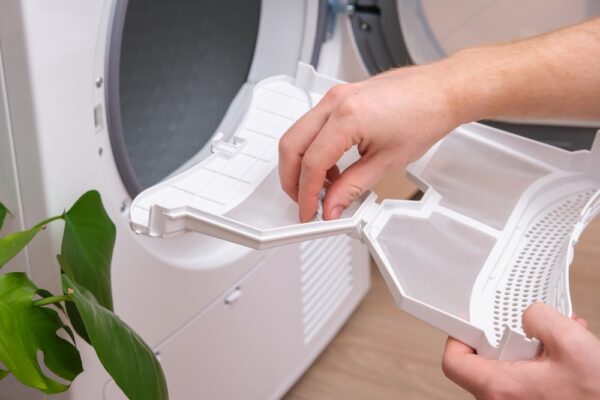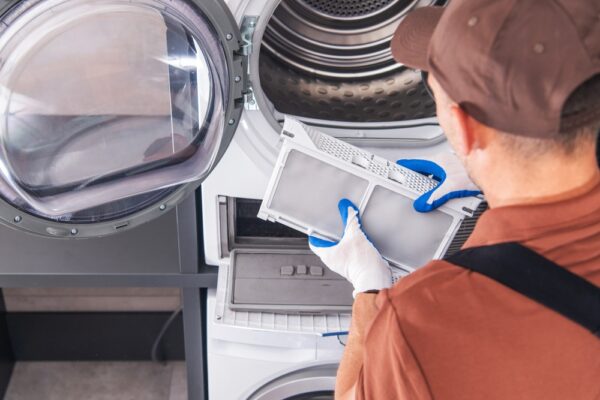Signs Your Dryer Vent Might Be Clogged
Introduction
Ah, the trusty dryer. It’s one of those household appliances that you take for granted until it stops working properly. One of the most common issues homeowners face is a clogged dryer vent. Not only can this lead to inefficiency and increased energy bills, but it can also pose serious safety hazards like fire risks. So, how do you know if your dryer vent is clogged? In this article, we’ll explore the signs your dryer vent might be clogged, how to address these issues, and why reliable appliance repair services are so important.
Signs Your Dryer Vent Might Be Clogged
Now that we’ve set the stage, let’s dive into the key indicators that suggest your dryer vent may be obstructed.
1. Longer Drying Times
One of the first signs your dryer vent might be clogged is when your clothes take significantly longer to dry than they used to. If you notice that a standard cycle is taking double or even triple the time, something’s not right.

Why Does This Happen?
When lint accumulates in the vent, it restricts airflow. The dryer works harder to push hot air through the damp clothes but ultimately fails to remove moisture effectively.
2. Overheating Dryer
If you find that your dryer feels excessively hot to the touch after a cycle, this could indicate a clog in the vent.
Safety Concerns
A dryer that runs too hot can become a fire hazard. Lint is highly flammable; therefore, ignoring this sign can lead to disastrous consequences.
3. Burning Smell
Have you ever caught a whiff of something burning while doing laundry? A burning smell during operation suggests that lint is overheating within the machine or ductwork.
What Should You Do?
If this happens, turn off your dryer immediately and call a reliable appliance repair service for help.
4. Lint Accumulation Around the Dryer
Do you see an unusual amount of lint around your dryer or inside its door?
What This Indicates
Excess lint buildup outside indicates that not all of it is making its way out through the vent—meaning you might have a blockage somewhere along the line.
5. Increased Energy Bills
Are you noticing a spike in your energy costs? If your dryer has become less efficient due to a clog, it will consume more electricity while trying to perform its job.
Long-Term Costs
Not only will you pay more on utility bills, but eventually, you could face costly repairs or replacement if issues aren't addressed promptly.
6. Moisture in Laundry Room
If you're experiencing excessive moisture in your laundry room after drying clothes, it's possible that warm, moist air isn't being expelled properly due to a blocked vent.
Health Implications
This could lead to mold growth and other health concerns over time; thus addressing the issue right away is crucial.
7. Dryer Vent Hood Doesn't Open Properly
The hood on your external vent should open when your dryer runs. If it doesn't move at all or opens only slightly, there's likely an obstruction preventing proper airflow.
How To Check This?
Stand outside near where your vent exits and observe whether it opens during operation.
8. Frequent Breakdowns or Repairs Needed
If you find yourself calling for dryer repair more often than you'd like, consider whether blocked vents are part of the equation.
Cost-Effective Solutions
Investing in regular maintenance and dryer vent cleaning can save money in repairs down the line.
Understanding Dryer Vents and Their Importance
Before we go further into how you can resolve these issues, let’s understand what exactly we’re dealing with when we talk about dryer vents.
What Is a Dryer Vent?
A dryer vent is essentially a duct system designed to carry hot air and moisture from inside your home out into the environment when you're using your clothes dryer.
Why Is It Crucial for Your Safety?
- Prevents Fire: A clean vent reduces fire hazards associated with lint buildup.
- Efficiency: Clean vents mean quicker drying times and lower energy consumption.
- Air Quality: Proper ventilation maintains better air quality by expelling humidity and pollutants from laundry cycles.
How Often Should You Clean Your Dryer Vent?
Regular maintenance can dramatically improve both efficiency and safety:
- For regular users: Every 6 months
- For heavy users: Every 3 months
Why Regular Cleaning Matters
Neglecting routine maintenance not only increases risks but also leads to unnecessary wear on your appliance—costing more money in repairs or replacements over time!
DIY vs Professional Dryer Vent Cleaning
Let’s weigh DIY options against hiring professionals for dryer vent cleaning Des Plaines IL services:

DIY Cleaning Steps
What Are The Downsides?
While DIY cleaning saves money initially, improper techniques could lead to damage requiring professional appliance repair near me.
Benefits of Hiring Professionals
- Expertise: Professional services bring years of experience.
- Equipment: They have specialized tools that clean deeply without damaging components.
- Peace of Mind: Knowing experts handle potentially hazardous situations frees up mental space!
When to Call Reliable Appliance Repair Services
Sometimes it's evident that DIY won't cut it! Here are some scenarios where calling experts becomes essential:
- Persistent Problems
- Signs of Damage
- Time Constraints
In these cases, reaching out for assistance from companies like Excellence Appliance Repair ensures swift resolution—keeping both safety standards intact while restoring functionality!
FAQs About Clogged Dryer Vents
1. How do I know if my dryer vents are clogged?
You’ll notice longer drying times, burning smells, excessive heat coming from the machine, or visible lint buildup around areas connected with ventilation systems.
2. Can I clean my own dryer vents?
Yes! With appropriate tools and precautions like turning off power first; however hiring professionals offers peace-of-mind solutions without risking further complications down-the-line!
3. Why does my laundry room feel humid after drying?
This indicates warm moist air Visit this website isn’t being expelled properly due either blockages throughout ducts preventing adequate flow which requires immediate attention!
4. What happens if I ignore clogged vents?
Ignoring these signs increases energy bills alongside fire hazards—not worth any potential savings on superficial cleaning efforts!
5. How often should I get my vents cleaned?
Every six months typically suffices; heavier usage means every three-month checks will keep things safe & efficient!

6. Can clogged vents cause fires?
Absolutely! Lint accumulation poses serious risks as it becomes highly combustible under high temperatures—another great reason never neglect regular maintenance tasks!
Conclusion
The signs pointing toward potential blockages within our beloved dryers shouldn’t be ignored—especially when they come bearing warnings about safety! Recognizing early symptoms allows us proactive measures rather than reactive repairs later down-the-line; saving time & money alike!
Whether opting for dryer repair Des Plaines, engaging professional help for dryer vent cleaning, or rolling up those sleeves for some DIY work—the key takeaway remains clear: Maintain those vents diligently! After all—clean lines pave smooth paths towards efficient laundry days ahead!